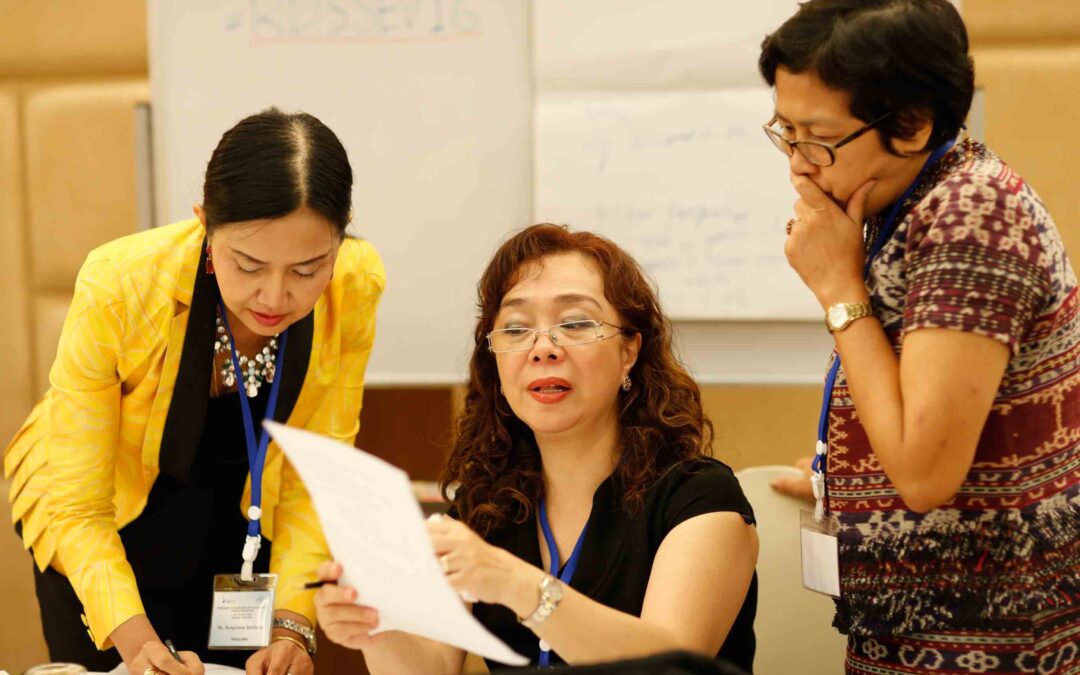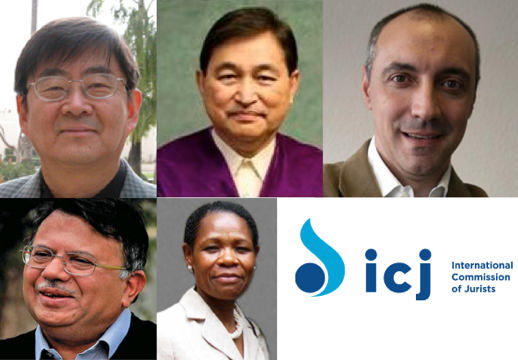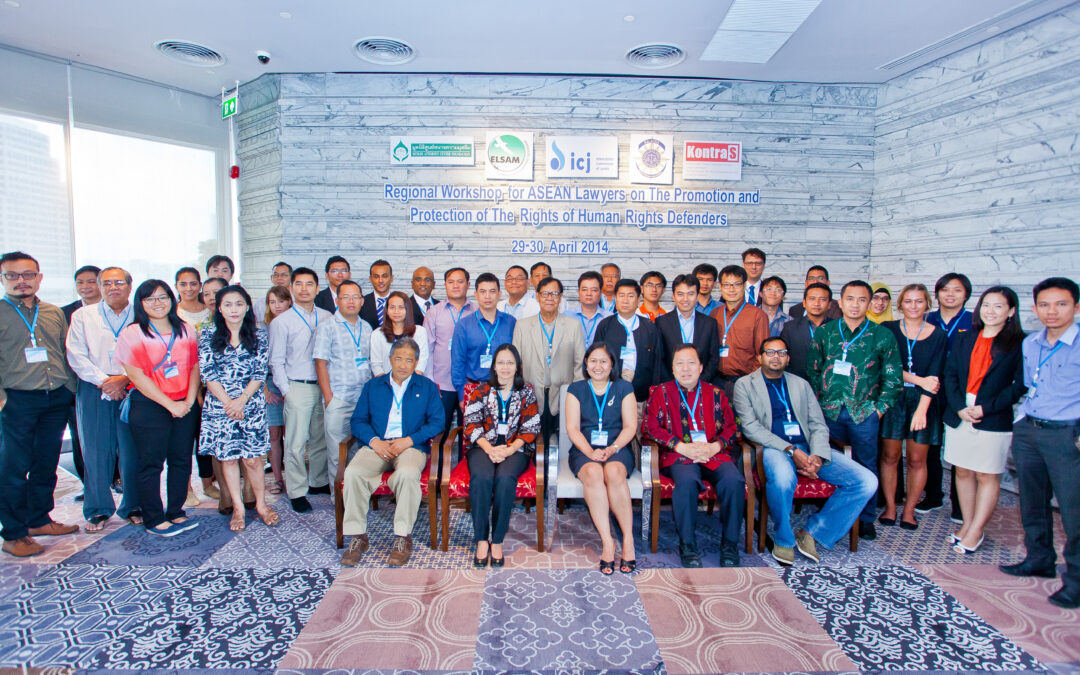
Jun 25, 2016 | Advocacy
The ICJ today published a General Guidance aimed at assisting judges and others in the justice sector to effectively incorporate a gender perspective in their work.
The General Guidance is especially significant as it reaffirms that customs and traditions should not be invoked to justify discrimination against women.
The Bangkok General Guidance for Judges in Applying a Gender Perspective was discussed and adopted by judges from Philippines, Thailand, Timor Leste, and Indonesia, at a gathering in Bangkok from 24 to 25 June 2016, hosted by the ICJ and UN Women.
During the workshop, judges from the four Southeast Asian countries deliberated extensively how best to assist judges in employing a gender perspective in deciding cases before them.
“The Bangkok General Guidance can make a powerful contribution towards achieving gender equality under the law in Southeast Asia,” said Sam Zarifi, Regional Director for Asia and the Pacific at the ICJ. “It is crucial that judges now work to implement this General Guidance in their home countries.”
The idea to initiate the development of th Bangkok General Guidance emerged from the ASEAN Regional Dialogue on Judging with a Gender Perspective, which was held in Jakarta, Indonesia in 2015.
The Supreme Court of the Philippines offered to take the lead on the project during that regional judicial dialogue.
“Women have a right to equal treatment and equal protection and non-discrimination under the law. It is our responsibility as judges to ensure that women receive equal treatment in law and in practice,” said Justice Teresita de Castro of the Supreme Court of the Philippines.
Judges attended several sessions over the course of the two-day workshop, participating in exercises focused on identifying and addressing gender stereotypes.
“Women in the region face many obstacles in accessing justice,” said Roberta Clarke, Regional Director for Asia and the Pacific at UN Women.
“But judges may be either unaware of these issues or unsure how to address these issues through the legal process,” she added.
The Bangkok General Guidance will make judges aware of means to consider evidence without resorting to gender stereotypes and decide cases based on the principle of equality recognized under international human rights standards, including the Convention on the Elimination of All Forms of Discrimination against Women (CEDAW).
Recommendations for institutional policies that should be adopted by courts to help them become more gender sensitive and gender responsive are also set out in the General Guidance.
Contact:
Emerlynne Gil, Senior International Legal Adviser for Southeast Asia, t: +66840923575 ; e: emerlynne.gil@icj.org
Southeast Asia-Bangkok-Guidance-Advocacy-2016-ENG (full PDF, in English)
Southeast Asia-Bangkok-Guidance-Advocacy-2016-BUR (full PDF, in Burmese)
Southeast Asia-Bangkok-Guidance-Advocacy-2016-MON (full PDF, in Mon language)
Southeast Asia-Bangkok-Guidance-Advocacy-2016-SHAN (full PDF, in Shan language)

Aug 27, 2014 | News
The ICJ is delighted to announce five new Commissioners: Professor Kyong-Wahn Ahn (Republic of Korea), Justice Adolfo Azcuna (Philippines), Professor Miguel Carbonell (Mexico), Justice Yvonne Mokgoro (South Africa) and Justice Ajit Parkash Shah (India).

Feb 19, 2014 | News
The Philippines Supreme Court’s decision to uphold provisions in the Cybercrime Prevention Act that penalize online libel may stifle freedom of expression, the ICJ warned today.
Yesterday, the Philippine Supreme Court upheld as constitutional the provisions in the Cybercrime Prevention Act penalizing and increasing the penalty for libel committed online.
“By enacting this law, the Philippines government will inhibit people who try to express themselves through the Internet and electronic media,” said Emerlynne Gil, ICJ Legal Advisor on Southeast Asia. “The Supreme Court decision unfortunately means that the Philippines has now joined those countries in the ASEAN region that are vainly trying to turn back the tide of greater and freer expression online.”
The Cybercrime Prevention Act (Republic Act No. 10175) was adopted in September 2012, but its application was suspended in October 2012 by a temporary restraining order issued by the Supreme Court.
Several groups, such as the National Union of Journalists of the Philippines, the Internet and Society Program of the UP College of Law, and the National Press Club, filed petitions before the Supreme Court alleging that the law on its face violates the right to freedom of expression as guaranteed under the Philippine Constitution.
The ICJ considers the Cybercrime Prevention Act as incompatible not only with the Philippine Constitution, but also with Philippines’ international obligations under the International Covenant on Civil and Political Rights (ICCPR), which guarantees the rights to freedom of expression, including the right to receive and impart information.
“The criminalization of libel or defamation is an affront to freedom of expression,” Gil said. “It’s now up to the Philippine Congress to amend the Cybercrime Prevention Act and decriminalize libel and defamation so as to ensure respect for freedom of expression consistent with its international obligations.”
The Court upheld both Sections 4(4) and 6 of the law, which respectively provide that libel committed through a computer system or similar means is illegal and that responsible persons will incur the penalty one degree higher than what is provided under the Revised Penal Code.
Hence, a person found guilty of committing online libel may be subject to imprisonment from six to nine years.
The ICJ has previously expressed opposition to the law, pointing out that its provisions on online libel compound the existing problematic provisions on defamation in the Philippine’s Revised Penal Code and provide for even greater penalties for libel.
The decision of the Supreme Court made a distinction on who may be punished of committing online libel.
It specified that only the original author of the allegedly libelous statement and not the recipient or those who disseminated, such as an internet service provider, may be held criminally responsible for online libel under the law.
The UN Human Rights Committee, the international monitoring body of the ICCPR, has said that States should decriminalize libel or defamation.
It underlined that in order to comply with their obligations under ICCPR, States may only penalize the most serious defamation cases and even in these cases, “imprisonment is never an appropriate penalty.” The Philippines has been a party to the ICCPR since 1986.
The ICJ welcomed the Court’s striking down as unconstitutional section 19 of the Act, which gives the Department of Justice power to restrict or block access, without prior judicial determination, to computer data found to be in violation of the law.
This is in line with the international standard that no law shall confer unfettered discretion to those charged with its execution the restriction of freedom of expression.
Contact:
Emerlynne Gil, ICJ International Legal Adviser for Southeast Asia, t +66 2 619 8477; email: emerlynne.gil(a)icj.org (For English, Filipino, and Cebuano)
Craig Knowles, ICJ Media Consultant, t +66 81 9077653; email: craig.knowles(a)icj.org






